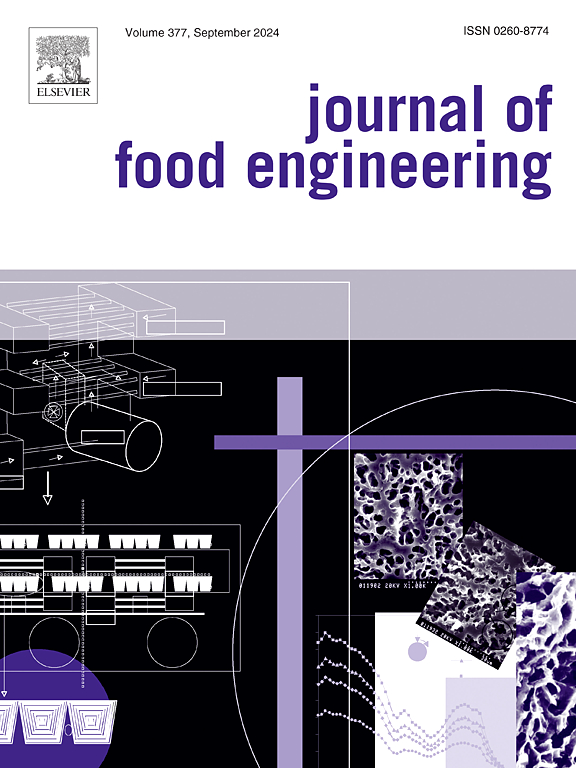评价微波与常规加热对糖基化α-乳清蛋白负载乳状液稳定性的影响
IF 5.8
2区 农林科学
Q1 ENGINEERING, CHEMICAL
引用次数: 0
摘要
比较分析了不同加热温度(75℃、85℃和95℃)下微波处理(MH)和水浴处理(WH)对糖基化α-乳清(GLA)乳状液稳定性的影响。与wh处理的GLA相比,mh处理的GLA褐变强度和清除DPPH的能力更强,游离氨基含量更低。与WH相比,MH显著降低了gla负载乳状液的乳化指数(CI)、平均粒径、过氧化物值(POV)和硫代巴比妥酸反应物质(TBARS)值,提高了gla负载乳状液的界面吸附比和ζ电位绝对值。此外,在95℃条件下,MH制备的GLA乳液在保存10天后仍具有最好的稳定性。这些结果表明,MH是提高糖基化蛋白负载乳的物理稳定性和氧化稳定性的较好方法。本文章由计算机程序翻译,如有差异,请以英文原文为准。
Evaluating microwave and conventional heating on the stabilization of emulsion loaded by glycosylated α-lactalbumin
Impact of microwave treatment (MH) and water bath treatment (WH) at various heating temperatures (75, 85 and 95 °C) on the stability of glycosylated α-lactalbumin (GLA) emulsion was compared and analyzed in this work. The MH-treated GLA had stronger browning intensity and DPPH scavenging ability, and lower free amino group than WH-treated GLA. Compared with WH, MH significantly reduced the creaming index (CI), average particle size, peroxide value (POV) and thiobarbituric acid-reactive substances (TBARS) value of GLA-loaded emulsion, whereas increased its interfacial adsorption ratio and Zeta-potential absolute value. Furthermore, the emulsion with GLA prepared by MH at 95 °C had the best stability even after 10 days of storage. All these results suggest that MH is a superior way to improve physical and oxidant stability of glycosylated-protein loaded emulsion.
求助全文
通过发布文献求助,成功后即可免费获取论文全文。
去求助
来源期刊

Journal of Food Engineering
工程技术-工程:化工
CiteScore
11.80
自引率
5.50%
发文量
275
审稿时长
24 days
期刊介绍:
The journal publishes original research and review papers on any subject at the interface between food and engineering, particularly those of relevance to industry, including:
Engineering properties of foods, food physics and physical chemistry; processing, measurement, control, packaging, storage and distribution; engineering aspects of the design and production of novel foods and of food service and catering; design and operation of food processes, plant and equipment; economics of food engineering, including the economics of alternative processes.
Accounts of food engineering achievements are of particular value.
 求助内容:
求助内容: 应助结果提醒方式:
应助结果提醒方式:


